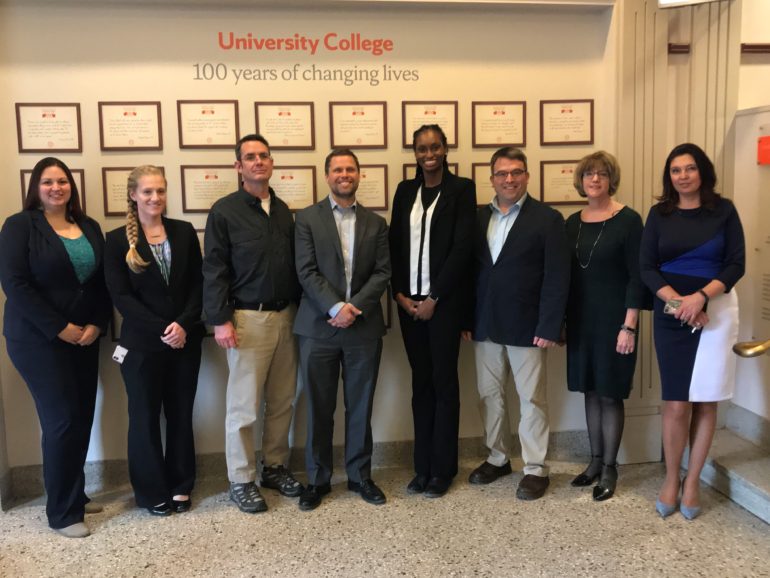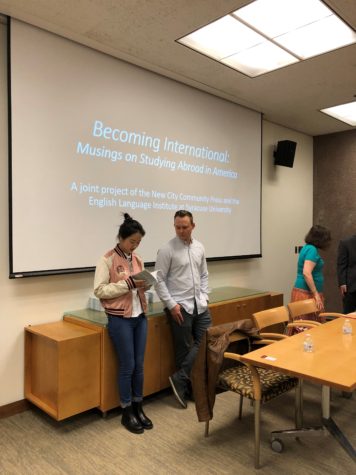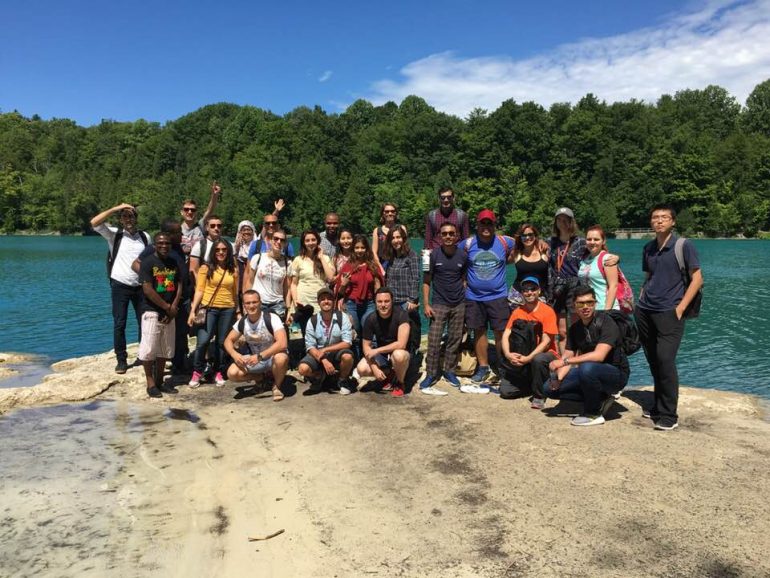Syracuse University’s English Language Institute (ELI) met with five soldiers from the 403rd Civil Affairs Battalion in Syracuse to help them prepare for a yearlong civil affairs mission in East Africa. Civil affairs officers use their expertise, language competency, political-military awareness and cross-cultural communication and military skills to conduct civil affairs operations throughout the world.
Sergeant First Class Michael Malizia, Captain Adrienne Gibson, Specialist Megan Sleeth, Captain Marl Pasibe and Sergeant Andrew Boyd will be hosting English language discussion groups with the civilian population in order to help them improve their English. “Helping the civilians build on the English skills they are already learning will not only empower them but will establish and grow the relationship the U.S. has in this area,” says Gibson.
The soldiers observed English language lessons taught by Connie Walters and Patrick McKinnon and then met with ELI staff members Danielle Benjamin, Jackie Monsour, Olga Oganesyan and director David Lind to learn different teaching strategies to lead discussion groups in East Africa.
“Consider using alternative methods to enhance the oral language instruction. Journaling and watching films can stimulate critical thinking and give the members of the discussion group another way to express themselves and make instruction interactive,” says Oganesyan. “It gives them the tools to share their stories, talk about their culture and learn about ours—all while speaking English.” The ELI staff also advised the soldiers to be culturally sensitive and establish a safe learning environment where everyone feels comfortable to participate.
“By observing the ELI classes and talking to the team about teaching strategies, we can now develop lesson plans for our assignment,” says Gibson.
The soldiers were given teaching guides and resources including picture dictionaries and English language workbooks. Each soldier also received a copy of “Becoming International,” a compilation of ELI student stories published last September. The staff offered to act as consultants while the team was on assignment.
“This has been a tremendous opportunity for us,” says Malizia. “We now have a solid plan of action to lead these discussion groups. We are now better prepared for our mission.”
Syracuse University’s English Language Institute (ELI) at University College serves students of diverse backgrounds who wish to prepare for undergraduate and graduate programs in the U.S., and professionals who wish to advance their careers. The ELI also provides consulting and support services for units that work directly with international students.
Story by Eileen Jevis, originally featured in Syracuse University News.




